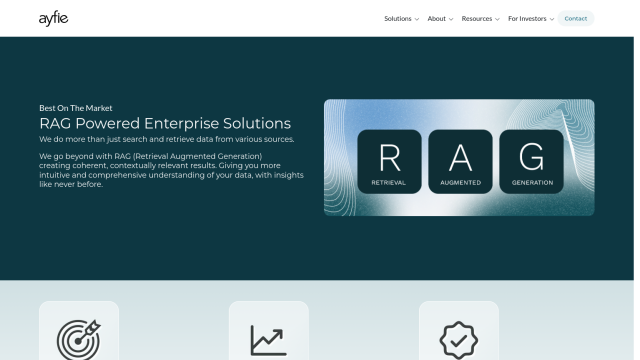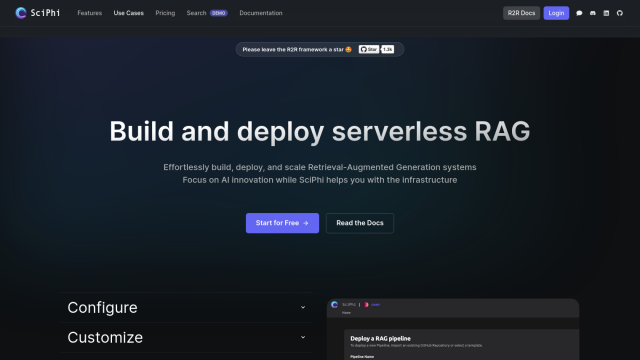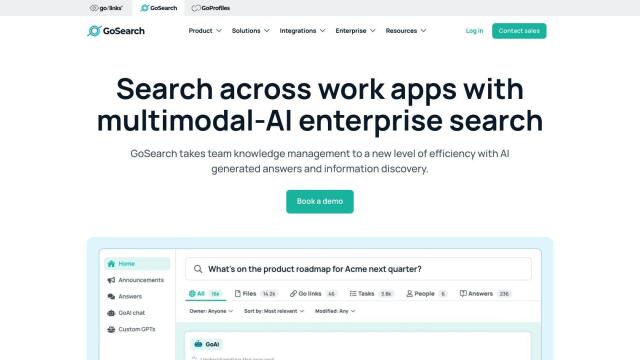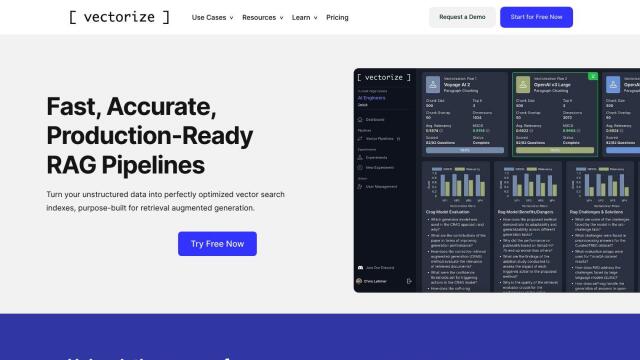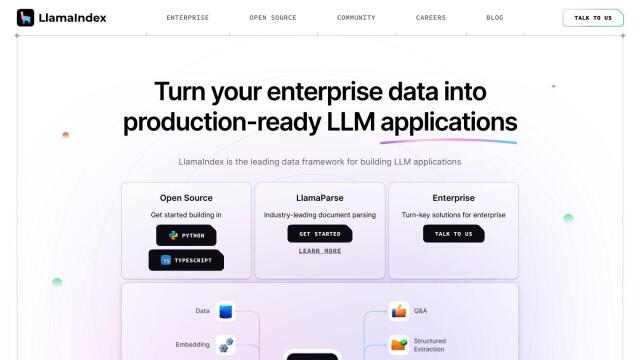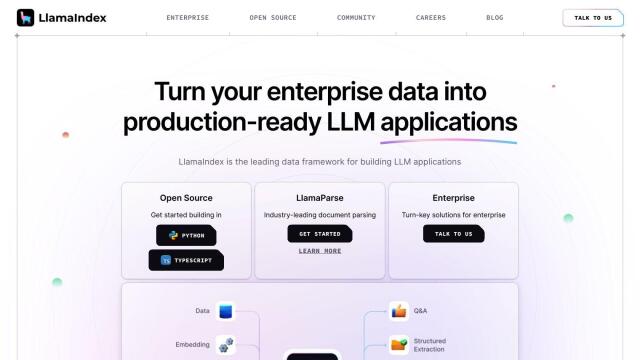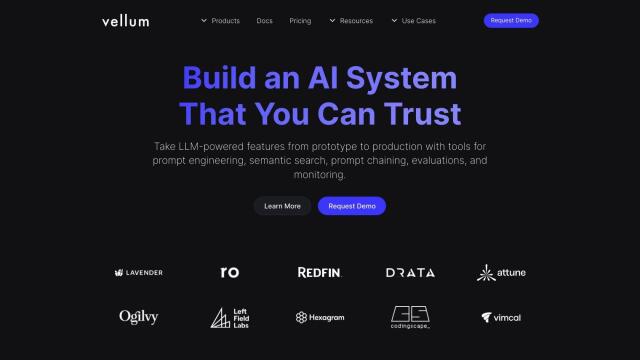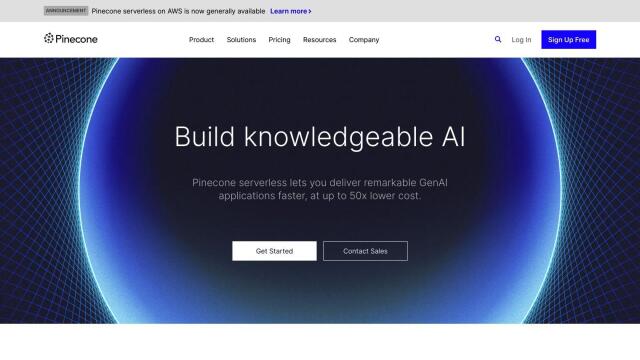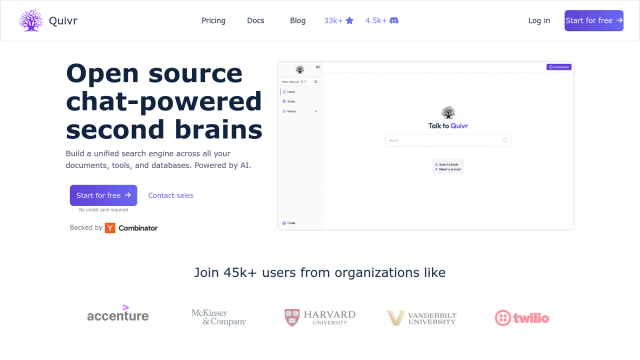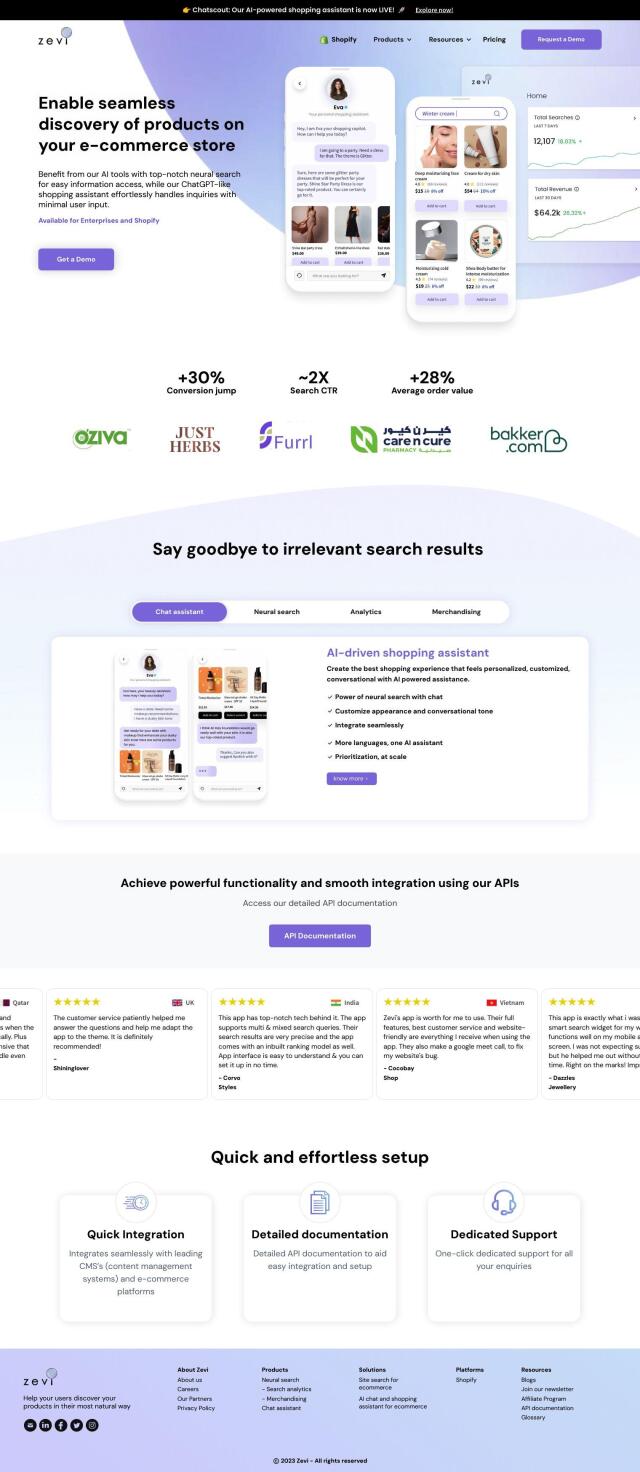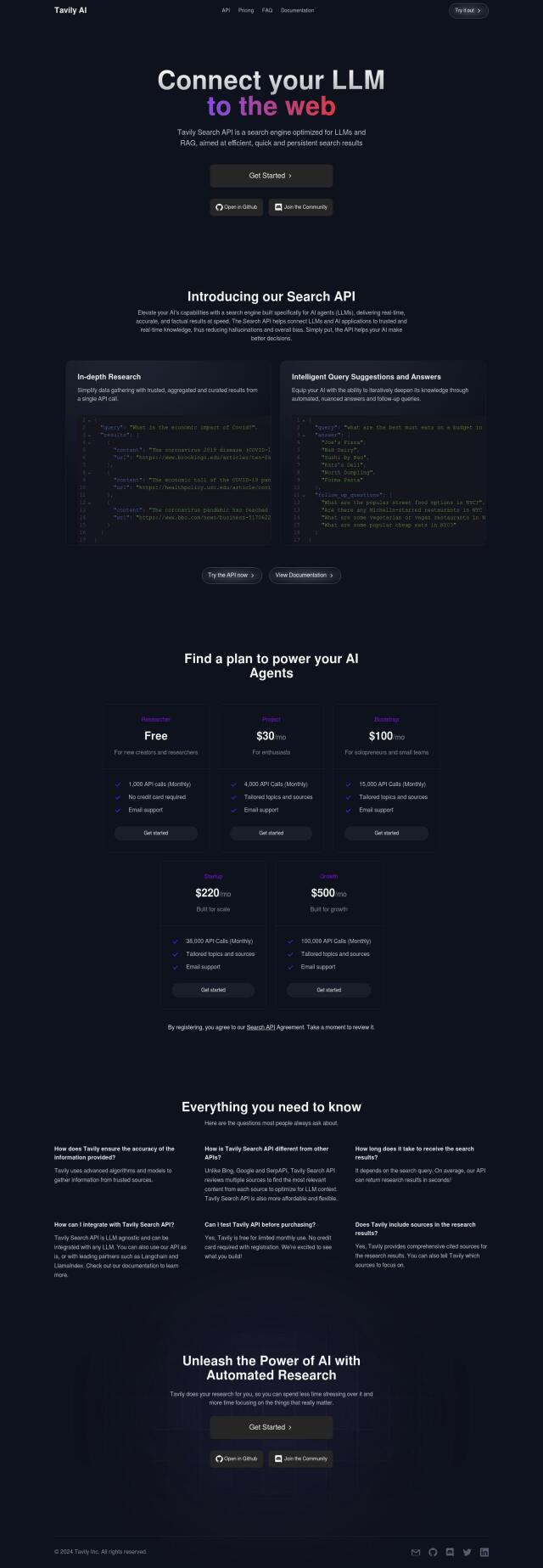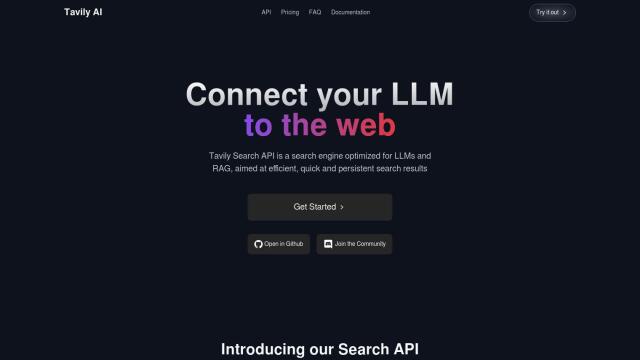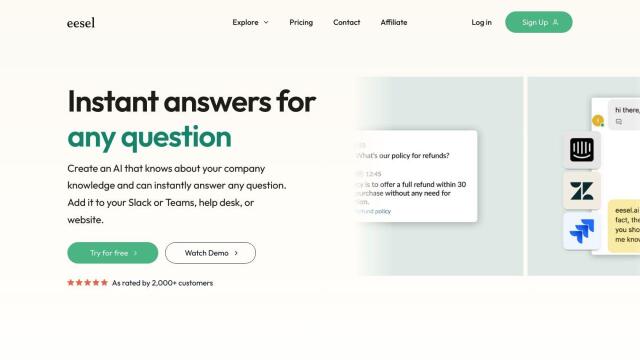Question: I'm looking for a search platform that can handle complex queries and deliver accurate results, can you suggest one?

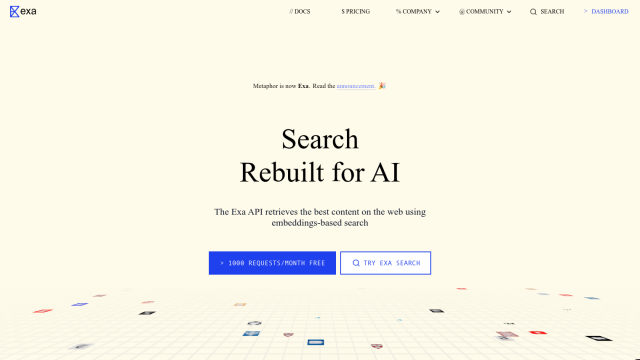
Exa
For a search engine that can handle complex queries and produce the right results, Exa is a top contender. It uses embeddings and transformer-based models to process natural language queries and deliver contextually relevant results. Exa is particularly well-suited for use with Large Language Models, ensuring authoritative web content and avoiding hallucinations. With a free tier and custom enterprise plans, it's a good option for a range of users.

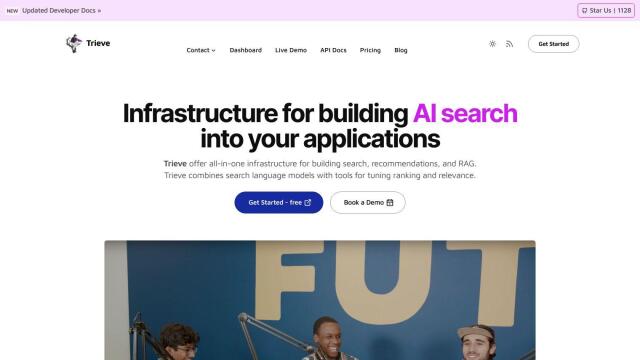
Trieve
Another top contender is Trieve, which offers a full stack of infrastructure for building search, recommendations and RAG experiences. Trieve marries language models with fine-tuning ranking and relevance tools, and it can handle advanced search features like semantic search and date recency biasing. It offers flexible hosting options and a variety of pricing tiers, making it good for commercial and noncommercial use.


Algolia
Algolia is another option worth considering, particularly for its AI-powered search infrastructure for personalizing search results. It combines keyword search with vector understanding, dynamic re-ranking and AI-powered merchandising, and it's good for a variety of industries and use cases. Algolia's flexible pricing and abundant documentation make it easy for developers to integrate and customize.

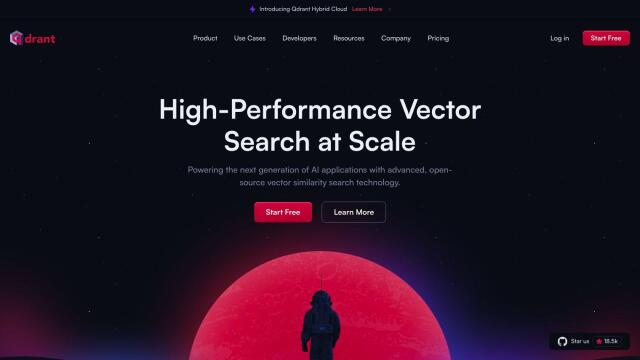
Qdrant
If you're looking for an open-source option, Qdrant is a cloud-native vector database and search engine good for fast and scalable vector similarity searches. Written in Rust for high-performance processing, Qdrant is designed for easy deployment and low cost. It integrates with leading embeddings and frameworks, offering a powerful and customizable search foundation for many projects.

